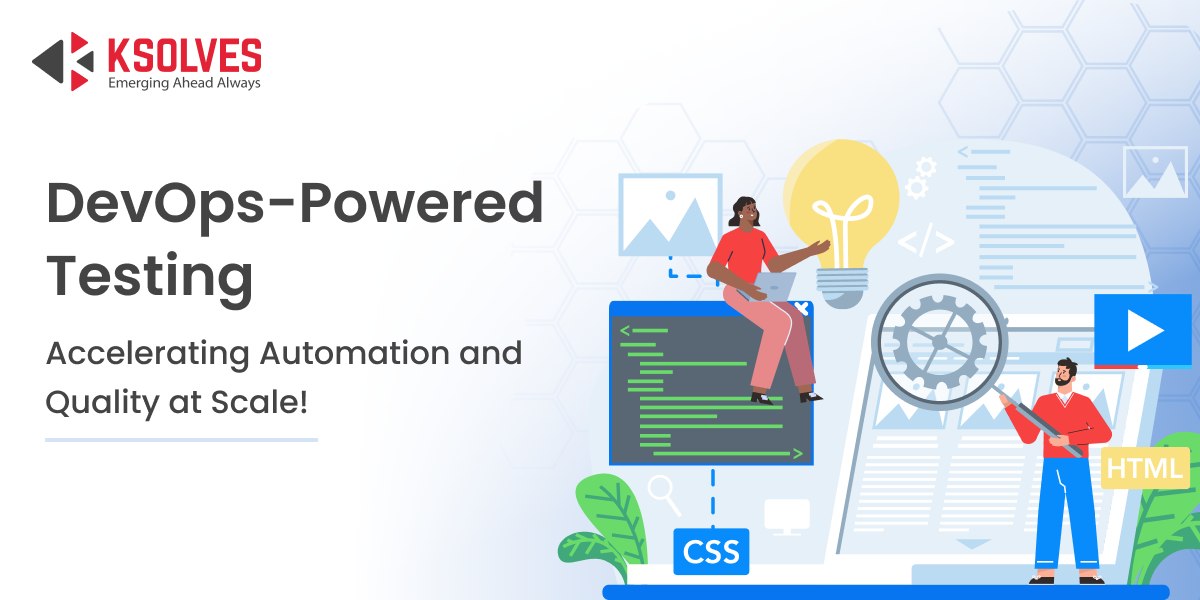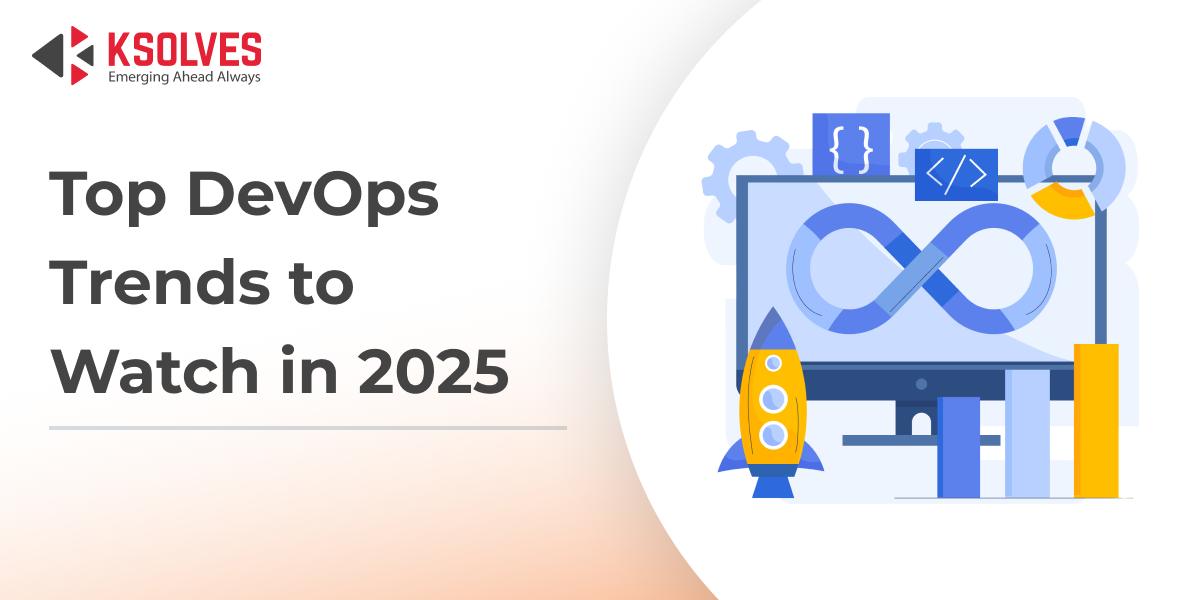Common DevOps Misconceptions You Should Stop Believing
DevOps
5 MIN READ
July 8, 2025
![]()

DevOps isn’t failing because it’s flawed—it’s failing because it’s misunderstood. Despite being a proven approach for accelerating software delivery and improving collaboration, over 75% of DevOps initiatives will fall short of expectations by 2026. That’s not due to a lack of tools or talent but because of persistent myths that derail implementation before real value is seen.
According to Puppet’s State of DevOps Report, high-performing DevOps teams deploy software 46 times more frequently and experience 5x lower change failure rates. Yet many businesses still treat DevOps as just another toolset or expect results without investing in cultural change, automation strategy, or cross-functional alignment.
From assuming DevOps is “just for developers” to thinking it’s incompatible with security or regulatory needs, these misconceptions create friction, delay delivery, and inflate costs.
In this blog, we’ll dive into the most common DevOps misconceptions and myths and provide clarity on what truly drives DevOps success. We’ll also explore how DevOps consulting services can help businesses adopt the right mindset, tools, and workflows while avoiding costly mistakes from day one.
Top DevOps Misconceptions (And the Reality)
1. Myth: DevOps is just about tools
Reality: While tools are important, DevOps is primarily about culture, collaboration, and process alignment between development and operations teams.
Many organizations fall into the trap of thinking that adopting popular DevOps tools, like Jenkins, Docker, or Kubernetes, is enough to “do DevOps.” In reality, tools are just enablers. The true foundation of DevOps lies in building a collaborative culture where development, operations, QA, and security teams work together seamlessly across the software lifecycle.
DevOps success depends on shared goals, continuous feedback, and strong communication, none of which can be achieved with tools alone. Without a cultural shift, even the best toolchain will fail to deliver continuous integration, faster releases, or improved software quality. That’s why leading DevOps transformations focuses first on people and processes, then aligns tools accordingly.
Bottom line: Tools support DevOps, but they don’t define it.
2. Myth: DevOps means developers take over operations
Reality: DevOps encourages shared responsibility, not role elimination.
A common misconception is that DevOps eliminates the need for operations teams, handing all infrastructure and deployment responsibilities to developers. This misunderstanding often creates resistance from ops professionals who fear their roles are being phased out.
In truth, DevOps promotes a collaborative approach where developers and operations work together to automate processes, monitor systems, and deliver software more efficiently. Developers may gain more visibility into infrastructure, but ops teams continue to play a critical role in ensuring system stability, security, and scalability.
DevOps doesn’t mean “developers do everything”; it means breaking down silos so both teams can contribute effectively toward a shared goal: delivering high-quality software faster.
Bottom line: DevOps empowers both dev and ops teams to collaborate, not replace one another.
3. Myth: DevOps is only for large tech companies
Reality: DevOps benefits organizations of all sizes and across various industries.
Many smaller businesses or non-tech companies assume that DevOps practices are too complex or resource-intensive for their scale. This myth stems from high-profile DevOps success stories often coming from tech giants like Netflix, Amazon, or Google.
In reality, DevOps principles, like automation, continuous delivery, and cross-functional collaboration, can streamline workflows, reduce manual errors, and speed up time-to-market for any organization, regardless of size or industry. In fact, small and mid-sized businesses often see faster ROI because they can adopt new practices with less legacy overhead.
Whether you’re an EdTech startup, a real estate firm, or a mid-sized financial services provider, DevOps helps teams work smarter and deliver better results.
Bottom line: DevOps isn’t just for the “big players”; it’s a scalable approach that brings value to businesses of all sizes.
4. Myth: DevOps is the same as Agile
Reality: DevOps and Agile are closely related but serve different stages of the software development lifecycle.
Agile emphasizes iterative, customer-focused development by breaking projects into smaller, manageable chunks called sprints. It improves collaboration between business stakeholders and developers to deliver working software quickly and continuously.
DevOps, on the other hand, picks up where Agile ends—bridging the gap between development and IT operations. It focuses on automating deployments, infrastructure, monitoring, and reliability to ensure that the software developed through Agile can be released faster, more frequently, and with fewer issues.
Bottom line: Agile speeds up development; DevOps ensures that what’s developed gets to users reliably and efficiently.
5. Myth: Security slows down DevOps
Reality: DevSecOps brings security into the DevOps process early, without compromising speed.
Traditionally, security checks were performed at the end of the development cycle, often causing delays and last-minute rework. DevSecOps shifts security left by embedding automated security practices, policies, and tools into the CI/CD pipeline. This includes vulnerability scanning, code analysis, and access control integrated into each stage of development and deployment.
By addressing security early and continuously, DevOps teams can deliver secure software faster, reduce risks, and avoid costly fixes later.
Bottom line: DevSecOps makes releases both faster and safer by weaving security into every stage of the pipeline.
6. Myth: DevOps Yields Instant Results
Reality: DevOps delivers long-term gains, but it’s not a quick fix or overnight transformation.
Many teams adopt DevOps expecting immediate improvements in speed, quality, and uptime. But real success requires consistent effort, collaboration, and cultural change. Implementing CI/CD pipelines, automating workflows, and aligning teams takes time, especially when legacy systems or siloed structures are involved.
The real value of DevOps comes from gradual, iterative progress. As teams adopt new practices, improve processes, and gain confidence in automation and monitoring, performance steadily improves.
Bottom line: DevOps is a journey, not a shortcut. The impact builds over time with the right strategy, tools, and mindset.
The Risks of Falling for These Misconceptions
Believing in common DevOps misconceptions slows down adoption and actively harms your software delivery efforts. Misunderstandings around what DevOps is (and isn’t) often lead to poor decisions, incomplete implementations, and long-term operational inefficiencies. Here’s how these risks play out:
- Failed Implementations
When teams adopt DevOps with the wrong expectations, like thinking it’s just about installing tools or replacing teams, they often miss the foundational cultural and process changes. This leads to fragmented rollouts, inconsistent practices, and systems that don’t deliver the intended value. Without a clear strategy, most DevOps efforts stall or get abandoned halfway. - Wasted Resources
Investing in automation tools, CI/CD platforms, and cloud infrastructure without a unified DevOps approach often results in duplicated work, underutilized platforms, and high operational costs. Teams spend time and money on disconnected experiments instead of building a cohesive delivery pipeline that actually improves output. - Frustrated Teams
When roles and expectations aren’t clearly defined, developers, operations, and QA teams face communication gaps and overlapping responsibilities. Developers may be burdened with infrastructure tasks they’re not trained for, while operations teams may be excluded from early planning. This friction reduces morale and slows collaboration. - Slower Delivery and Poor ROI
Ironically, one of the most common goals of adopting DevOps—faster delivery—becomes harder to achieve when the approach is flawed. Without alignment, automation becomes patchy, testing is inconsistent, and deployment cycles remain long and risky. This results in poor return on investment and growing skepticism across departments.
How DevOps Consulting Services Help You Get It Right
Trying to implement DevOps without a clear plan often leads to confusion, tool overload, and missed goals. This is where DevOps consulting services make a real difference. With expert guidance, your team avoids trial and error and moves forward with confidence. Here’s how consulting helps at every stage:
- Assessment of Current Processes
Consultants begin by reviewing your existing workflows, infrastructure, and team structure. This helps identify bottlenecks, manual steps, and gaps in automation that are slowing down delivery. - Custom Roadmap Creation
Based on the assessment, a tailored DevOps roadmap is created. It outlines step-by-step actions—from quick wins to long-term improvements—aligned with your team’s goals, tools, and technical environment. - Toolchain Selection and Integration
Choosing the right tools matters. Consultants help you select the best-fit tools for CI/CD, monitoring, version control, and containerization, and ensure they all work together smoothly. - Team Training and Enablement
A successful DevOps transformation depends on people, not just tools. Consulting services include hands-on training, best practices, and documentation to help your team adapt and adopt new workflows confidently. - 24×7 Support and Continuous Improvement
DevOps isn’t a one-time setup. With ongoing support and monitoring, consultants help you fine-tune processes, resolve issues quickly, and continuously improve performance and reliability.
Wrapping Up!
DevOps has the power to transform software delivery, but misconceptions often derail progress before real value is achieved. Misunderstanding DevOps as just a toolset or expecting instant results leads to failed implementations, wasted resources, and frustrated teams.
That’s why working with the right partner makes all the difference.
Ksolves, a trusted DevOps consulting provider, helps businesses cut through the noise. From assessing your current processes to building a tailored DevOps roadmap, selecting the right tools, and enabling your team with best practices, we guide every step with clarity and experience.
If you’re ready to implement DevOps the right way and see lasting results, connect with the DevOps experts at Ksolves today.
![]()








Author
Share with